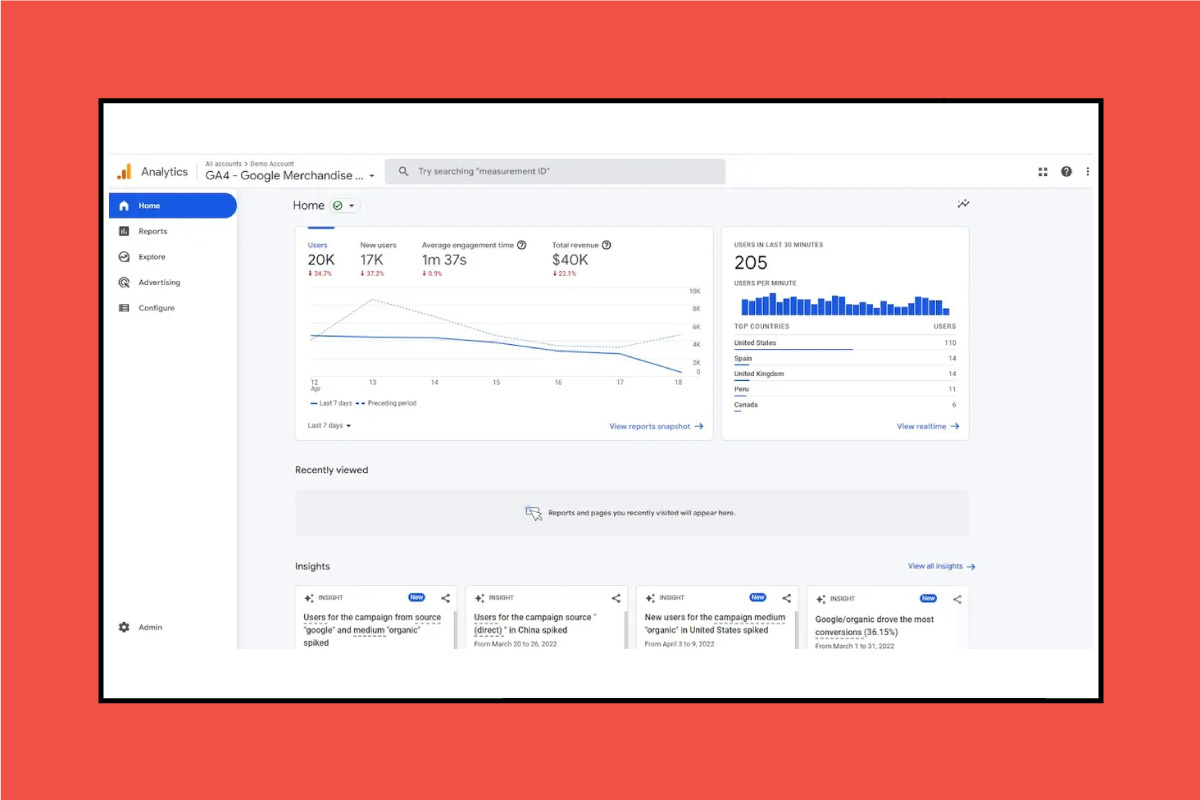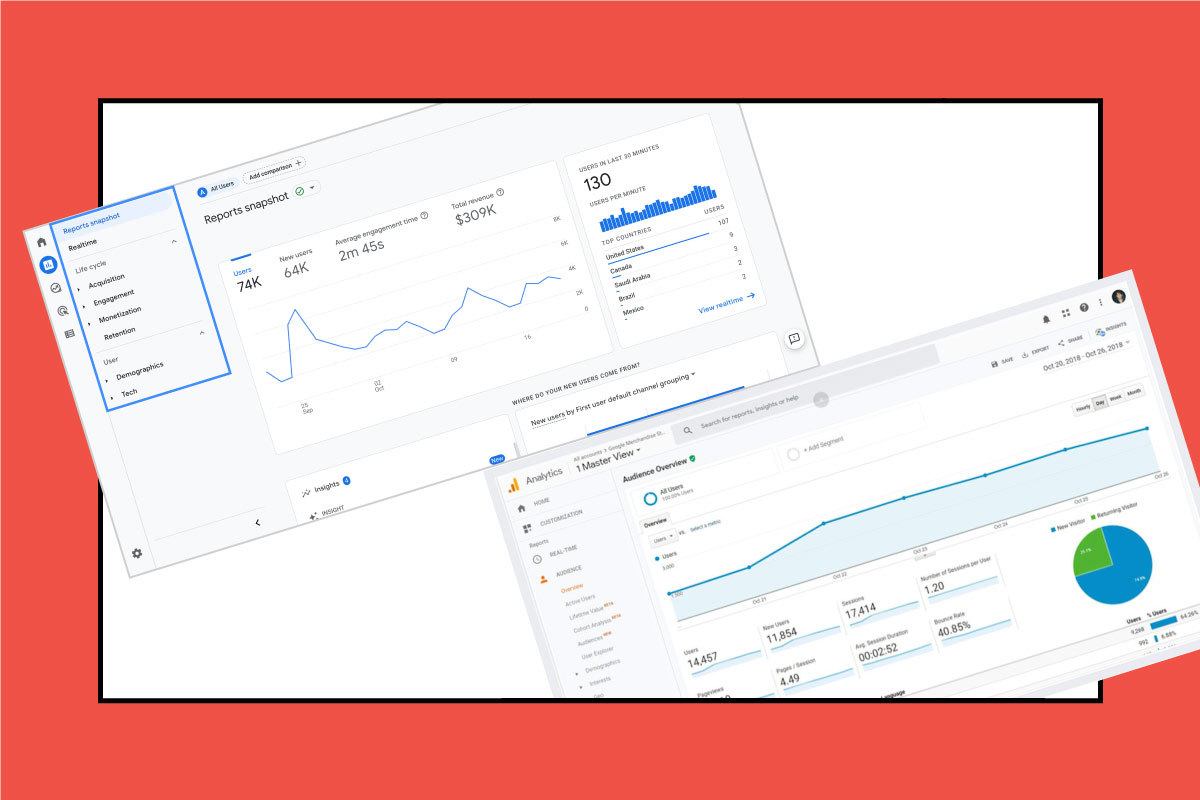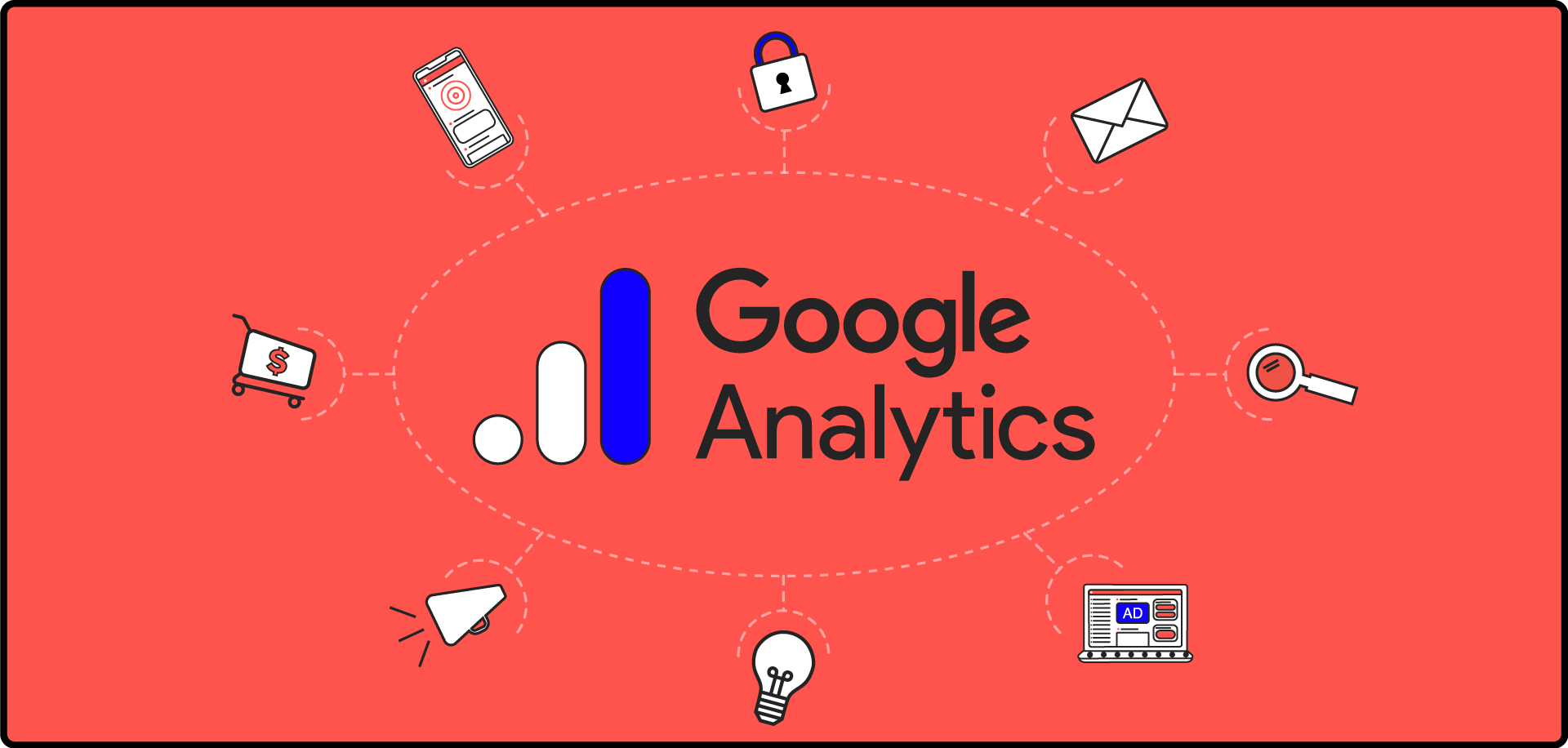Whether you love, hate, or are completely indifferent, the time has come to say goodbye to Google’s Universal Analytics (UA). Google is replacing its long-standing platform with Google Analytics 4 (GA4) on July 1, 2023. If you struggle with change, you may feel like you’re being dragged into the new era of GA4 kicking and screaming, but we can assure you it’s not a bad thing.
The previous iteration of Analytics has been around since 2012, and in that time, the way we use the web has significantly evolved. Gone are the days of desktop internet surfing. Now we’re accustomed to multi-platform consumption and have higher standards regarding both experience and privacy.
GA4 was designed to give website owners better insights while increasing user protections. Let’s explore why this change is being made and how it will impact your marketing efforts.
What is GA4?

Think of GA4 as the more tech-savvy cousin of UA – what Google describes as its “next-generation measurement solution.”
Its more streamlined appearance may make it seem like a stripped-down version of UA, but GA4 uses event-based data rather than cookies to measure across websites and apps. This means data is no longer siloed into individual sessions on a single platform, providing deeper insights into how users interact with your assets.
GA4 also expands its integration capabilities and uses machine learning to make predictions on user behavior, eliminating the need for more complex reporting.
And from a privacy standpoint, GA4 has made significant strides over its predecessor. Its enhanced privacy protections include cookieless measurement and a commitment to no longer store IP addresses.
What’s the Difference Between UA & GA4?

While these advancements are progressing the platform forward, the switch does mean users who have grown accustomed to UA reporting will have to revise how they collect and look at data. Metrics someone may use in UA aren’t necessarily available in GA4.
Becoming familiar with the new platform will take time and experience, but here are some of the changes most likely to impact your reporting:
GA4 vs Universal Analytics Events
One of the core model differences relates to Events. Where UA reports hit types such as Page Views, Social, User Timing, Exceptions, Transactions, and App/Screen Views, GA4 will report all of these as Events. With there no longer being a distinction, Events will no longer be given a Category, Action, or Label, making this one of the more significant ways data will be presented differently.
GA4 vs Universal Analytics Active Users & Session
You may notice discrepancies in your Active Users and Sessions as you make the switch from UA to GA4.
Where an Active User is detected through a manual interactive event in UA, a User is automatically captured upon the launch of a website or app in GA4, meaning you’ll likely see a higher number of Users in the new platform.
The parameters for a Session have seen even more significant changes. In UA, a session begins when a User reaches the page, encompasses all their interactions, and ends after 30 minutes of inactivity, the clock rolls over to a new day, or the users move onto a new campaign.
In GA4, a Session is counted regardless of activity. A user can utilize your site or app beyond midnight and engages in multiple events and campaigns while still being considered a single session.
GA4 vs Universal Analytics User ID
Just like in UA, GA4 will assign a User ID for identification purposes. The primary difference is the new User ID will track across platforms and devices, allowing you to follow the user’s entire journey rather than a single session.
How to Make the Shift from UA to GA4
The time has come to make the switch. All standard Universal Analytics will stop processing data on July 1, 2023. Historical UA reporting will be available throughout the year, but users are encouraged to export their historical data before it’s no longer accessible.
While there are a few months left before the shift is required, the best way to learn and become familiar with the new and improved yet vastly different GA4 is to use it. Don’t wait until June 30 to make the migration.
Are you feeling overwhelmed? No worries! Square 205 is here to help you migrate from Universal Analytics to Google Analytics 4. Contact us today so you can get ahead of the transition and expand your insights.

